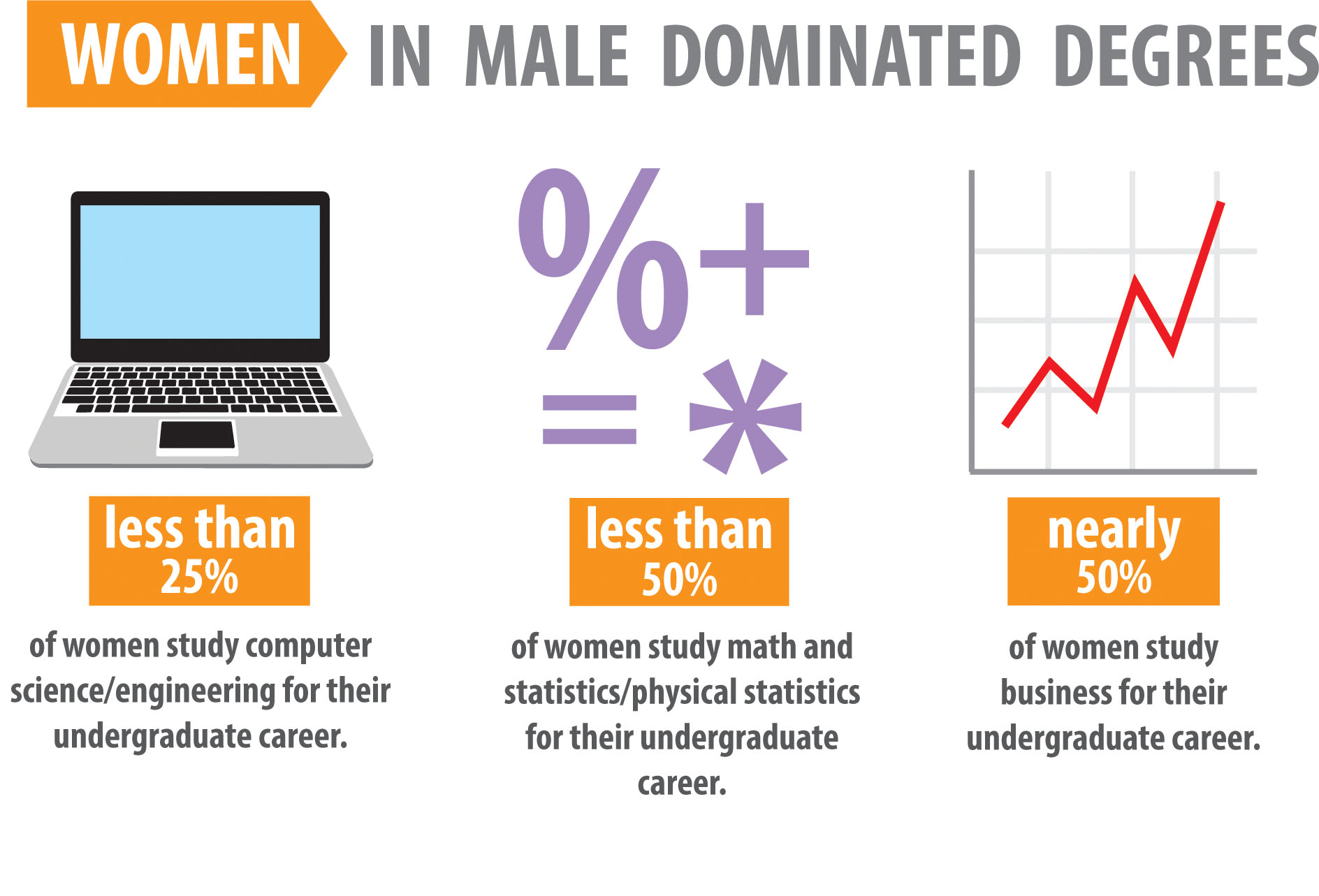
Female students and faculty challenge gender stereotypes in male-dominated majors
In a USD computer science classroom full of men, one female student is not afraid to leave her seat, approach the whiteboard and scribble her thoughts over it to find a solution to the lab at hand.
Senior Alexis Layne, a computer science major, is breaking down gender stereotypes in her male-dominated major by working with other women outside of the classroom and proving herself through her skills in the classroom, she said.
“It made a great environment for the other lab students because they could follow my logic and figure it out too,” Layne said. “It was more of a collaborative thing at that point.”
Choosing computer science
High school came easy to Layne, she said, so when it came to choosing a major, she wanted to do something she had never done before which would challenge her on a daily basis. Living in Yankton, she said it was easy for her to choose USD because it was close to home and offered what she considered to be her best choice for a computer science program in the area.
Despite her lack of experience with computer science and the fact that the major, as well as the profession, are male-dominated, she decided to follow her passion and give it a try.
“There’s a place for everybody in the college, in the world in general for jobs,” Layne said. “You just have to find yours, and if you don’t give it a shot, you’ll never know.”
One of the key things that helped Layne navigate through the challenges of her major was joining the Women in STEM group on campus. She said the group has given her skills to combat the stereotypes she may face in her chosen major, and it’s helped her to work with other women to break down stereotypes.
“Instead of being in competition with your fellow female coworkers, for example, you build each other up instead of putting them down, because you’re not in competition with them,” Layne said.
A scientist, not a ‘female scientist’
Layne asked Ahyoung Lee, assistant professor of computer science, to be her mentor. Layne said Lee’s expertise has taught her to have confidence in her work.
Lee said she tries to help women in computer science build a long-term goal to succeed in the field, and she tries to promote women to go into fields that many women aren’t encouraged to participate in.
“We are just a general scientist, not a ‘female scientist,’” Lee said. “I don’t like that sound. We are scientists.”
In the same respect, Layne said she’s bothered when a company has a diversity quota set in order to incorporate more women.
“I don’t want to get hired just because I’m a girl,” Layne said. “I want to be hired because I have this skill to prove myself.”
Sara Lampert, program coordinator for women, gender, & sexuality studies and an associate history professor, said women begin to think they are not as proficient in STEM fields as their male peers around eighth grade. She said this is what causes women to favor the humanities.
“Those patterns have a lot do with social messaging,” Lampert said. “That affects people when they get into college and are thinking about majors. It affects preparation for certain majors and is also connected with perceptions of careers as being gendered.”
However, Lampert said, computer science has not always been perceived as a career for men until figures such as Bill Gates and Steve Jobs impacted the cultural perception. She said this lead to a recent shift in the dominance of men in this industry.
Layne says she sees the male dominance of this field in class every day, as she is the only female in most of her classes. However, she refuses to let this prevent her from succeeding in computer science.
“Don’t be afraid of what people might think of you or what people have to say because you have every right to be there just as much as anyone else,” Layne said.

